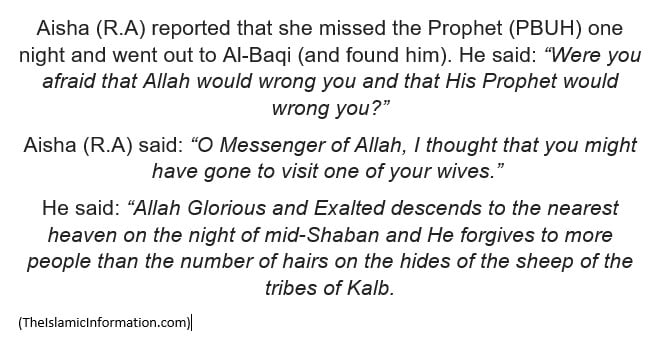
Authenticity of Shab-e-Barat From The Holy Quran And Sunnah
Shab-e-Barat is celebrated among Muslims, especially in Pakistan, India, Bangladesh, Malaysia, Indonesia, and the Maldives.
As momentarily as the 7th month of the Islamic calendar Rajab finishes, the 8th month of the lunar calendar starts, this month is denoted as Shabaan. The significance lies with the 15th evening of Shaban, which in the Arab world is identified as Laila-tul-Bara’ah or Laila-tul-nisfe-min-Shaban. In the sub-continent, mainly India and Pakistan, they call the night, Shab-e-Barat.
Though there are numerous beliefs and delusions about the night, only the ones supported by reliable hadiths or Quranic ayahs can be measured as true and sacred.
As per Minhaj-ul-Quran International,

The full of the Shaban Month is very important. The importance of this is evident from a tradition narrated by Aisha (RA):

Another narration of Aisha (RA) stated;
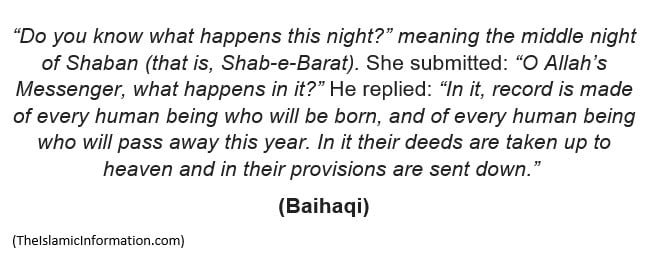
According to the Quran
To be clear there is no mention of Shab e Barat in the Holy Quran.
Though, even with so many orientations, other schools of thought vary in their view. According to some, there is no straight determination of the night of liberty or no direct background, other than tales and text were reserved out of context.
Except for the fasting in Shabaan, every other aspect of Shab-e-Baraat is uncertain to a diverse school of thought and views.
According to the Sunnah
There are certain traditions of Prophet Muhammad (PBUH) to prove that it is a meritorious night in which the people of the earth are attended by special Divine mercy. Some of these traditions are quoted as follows:
Sayyidna Mu’adh ibn Jabal (RA) reports that Prophet Muhammad (PBUH) has said:
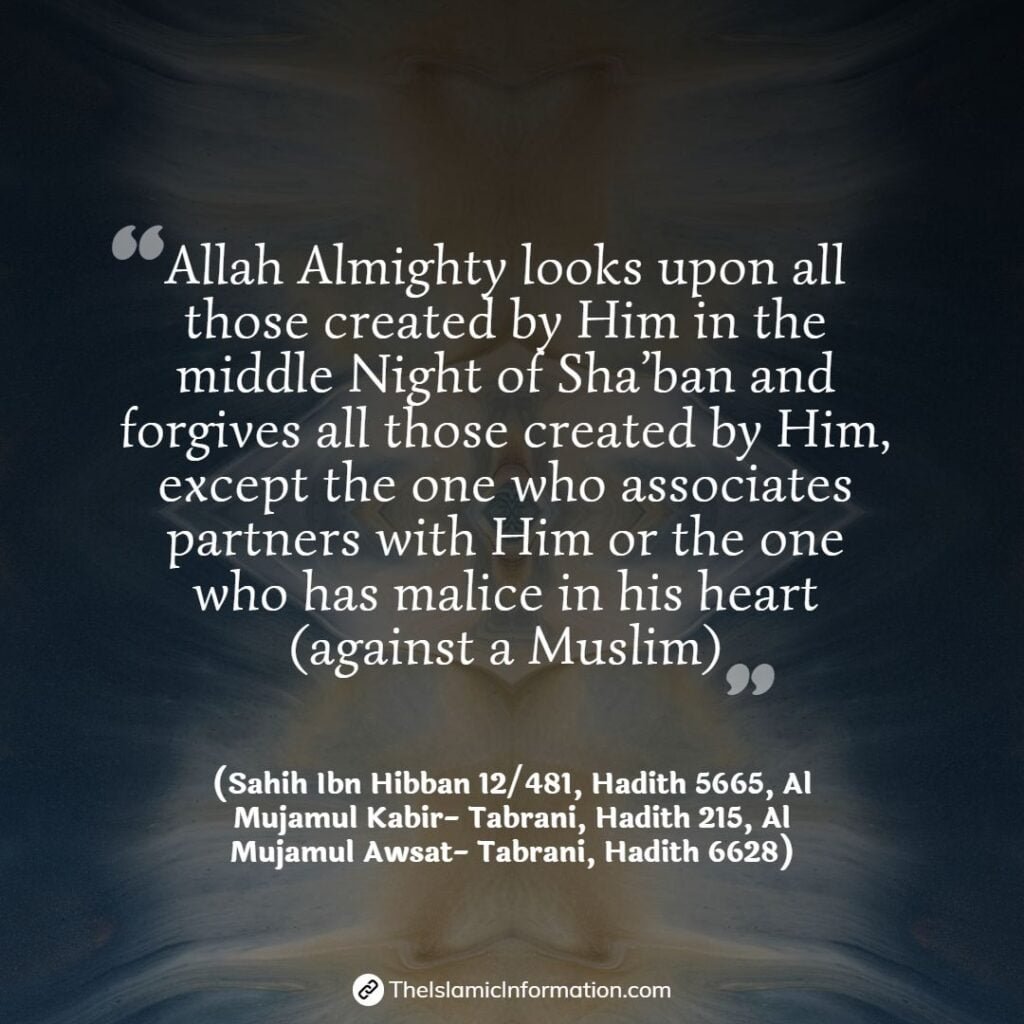
Ummul Mumineen Aishah (Ra) said,
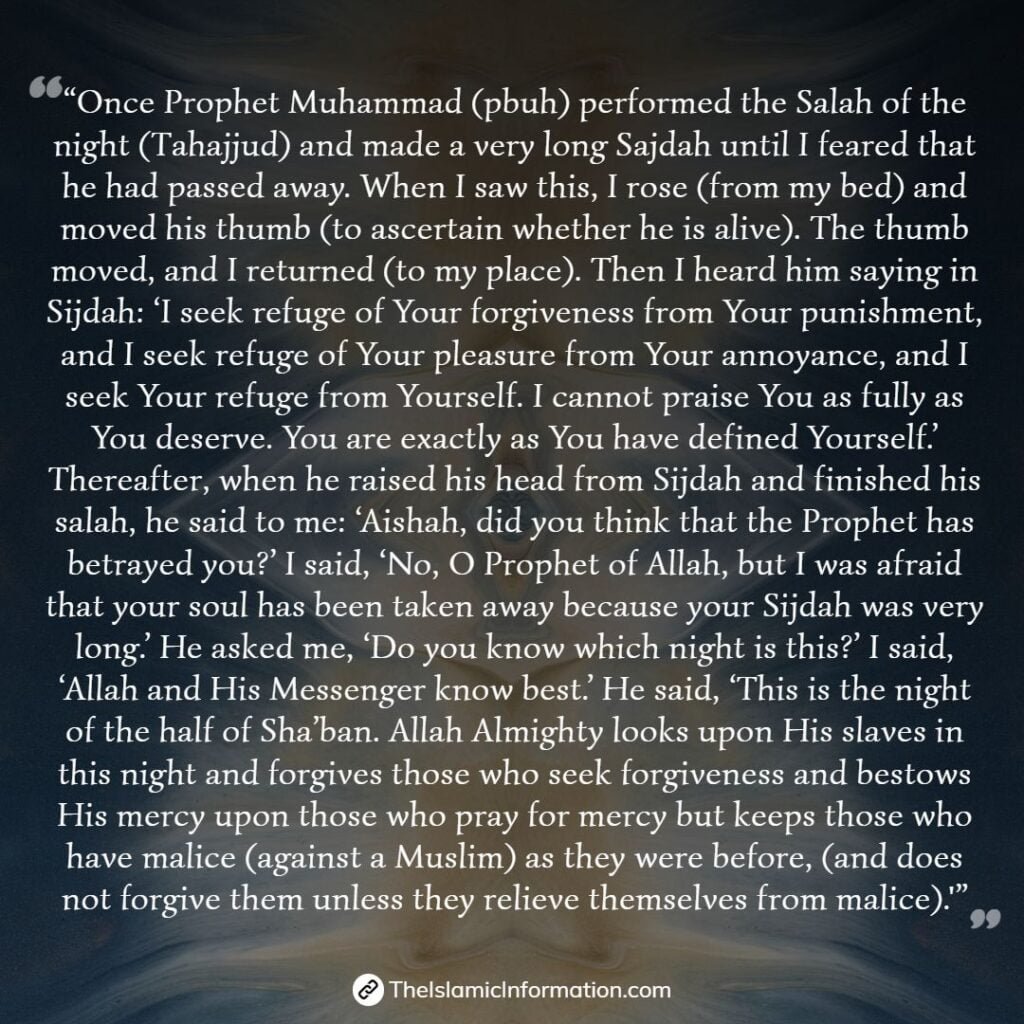
In another Tradition, Sayyidah Aishah (RA) has reported that:
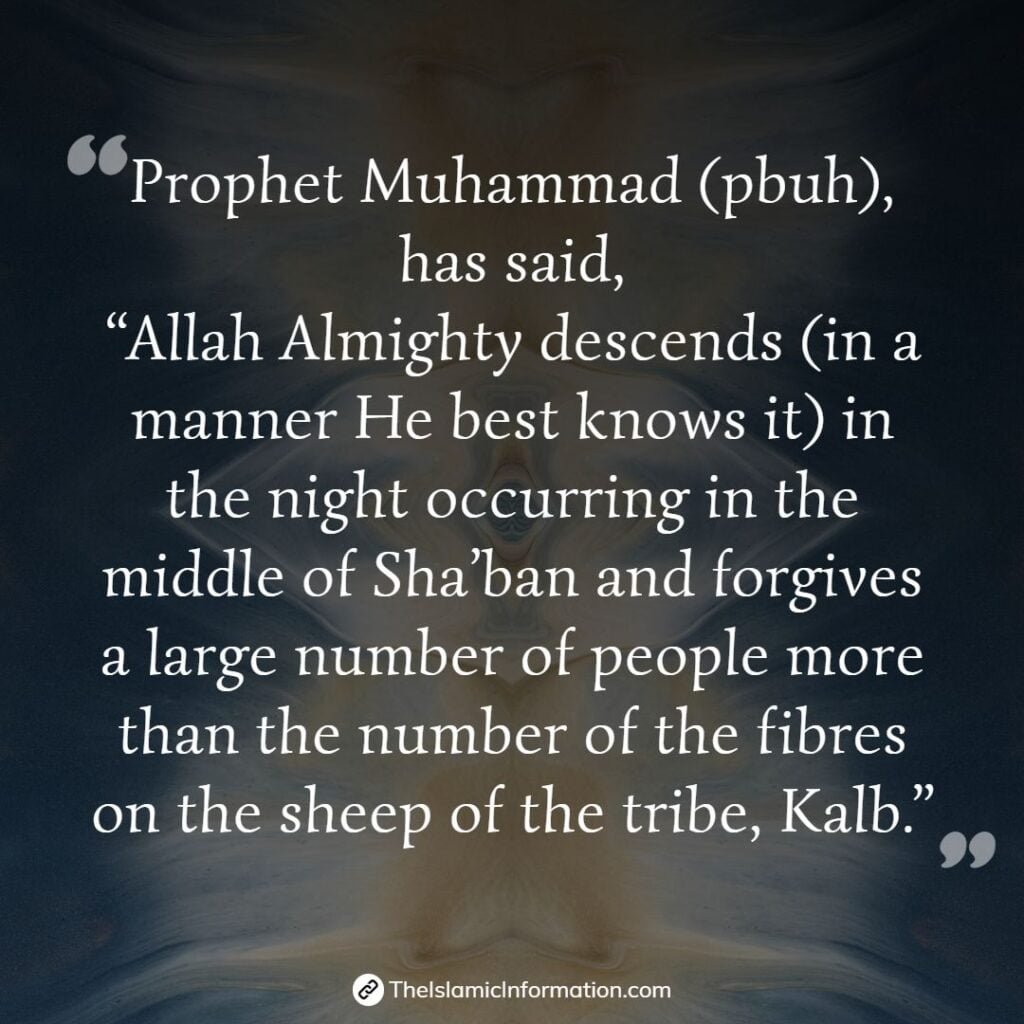
Kalb was a big tribe, the members of which had a very large number of sheep. Therefore, the last sentence of the Hadith indicates the large number of people who are forgiven on this night by Allah Almighty.
In yet another Tradition, she has reported Prophet Muhammad (PBUH) to have said, “This is the middle Night of Sha’ban. Allah frees in it a large number of the people from Fire, more than the number of the hair growing on the sheep of the tribe, Kalb.
But He does not even look at a person who associates partners with Allah, or at a person who nourishes malice in his heart (against someone), or at a person who cuts off the ties of kinship, or at a man who leaves his clothes extending beyond his ankles (as a sign of pride), or at a person who disobeys his parents, or at a person who has a habit of drinking wine.”
Although the chain of some of these Hadith suffers, when all these Hadiths are combined, it becomes clear that this night has some well-founded merits, and observing this night as a sacred night is not a baseless concoction.
Some modern scholars said there is no special importance to give to this night. Many Hadiths are unanimously Sahih and Hasan and prove that there is merit in the Night of Bara’ah.
Here we have to remember that Hasan Hadith is also Sahih and reliable because it is the type of Sahih Hadith. And if the weak Hadith is mentioned in several sources, it becomes so powerful and elevated to the level of Sahih Hadith. Besides, if a weak Hadith is not too weak and there is no Sahih Hadith against a weak Hadith, it is accepted as proof of purity.
Therefore, there is no chance to neglect any weak Hadith as Daif or weak. Most importantly, for the proof of the merit of the Night of Bara’ah, we do not need too many authentic Hadiths. Still, only a Sahih Hadith is sufficient for the virtue and significant evidence of the Night of Bara’ah.





